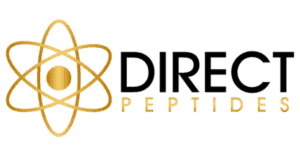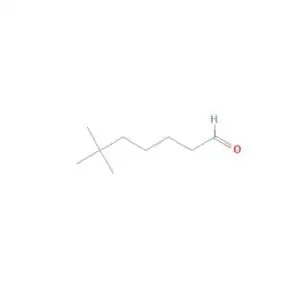Buy hMG Peptide Belgium
Buy HMG Peptide, derived from the urine of postmenopausal women, it is widely utilised in scientific research for its role in supporting reproductive function, enhancing sexual development, and aiding normal growth through its interaction with the complex endocrine system.
Shop our Full Range of human Menopausal Gonadotropin Peptides
-
Sale!
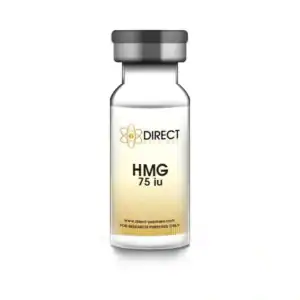
HMG Peptide Vial
£38.50 – £47.48Price range: £38.50 through £47.48 This product has multiple variants. The options may be chosen on the product page -
Sale!

HMG Nasal Spray
£46.50 – £88.00Price range: £46.50 through £88.00 This product has multiple variants. The options may be chosen on the product page -
Sale!
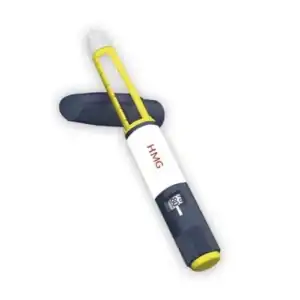
HMG Pre-Mixed Pen 75iu Peptide
£41.08 – £110.92Price range: £41.08 through £110.92 This product has multiple variants. The options may be chosen on the product page
What Is hMG Peptide?
Human Menopausal Gonadotropin (hMG) peptide is a formulation derived from the urine of post menopausal women. It contains two key hormones, luteinising hormone (LH) and follicle-stimulating hormone (FSH), which are essential for studying reproductive processes.
Belgium Researchers often use this peptide to investigate its influence on fertility, sexual development, and hormone regulation in both men and women. Due to its interaction with the endocrine system, it is instrumental in understanding normal growth and reproductive function.
Its ability to stimulate the gonadotropins makes it a valuable tool in scientific research focused on hormone-related studies.
human Menopausal Gonadotropin Mechanism Of Action
Human Menopausal Gonadotropin (hMG) peptide works by directly influencing the activity of the gonads through its two primary components, luteinising hormone (LH) and follicle-stimulating hormone (FSH). These hormones play a critical role in the regulation of the reproductive system.
FSH promotes the development and maturation of ovarian follicles in females, while in males, it supports spermatogenesis by acting on Sertoli cells in the testes. LH, on the other hand, triggers ovulation in females and stimulates the production of testosterone by acting on Leydig cells in males.
It replicates these natural processes, enabling researchers to observe and study hormonal regulation, gamete production, and endocrine interactions in precise, controlled environments. This mechanism of action is invaluable for advancing our understanding of fertility and hormonal therapies.
Source: PubChem
Structure of human Menopausal Gonadotropin
Molecular Formula: C9H18O
Molecular Weight: 142.24 g/mol
PubChem CID: 21888462
What Are The Research Benefits of human Menopausal Gonadotropin
Enhanced Understanding of Hormonal Interactions: Also known as menotropin, this peptide offers research professionals detailed insights into how the endocrine system regulates reproduction and fertility [1].
Simulation of Natural Processes: By mimicking the body’s hormonal mechanisms, hMG peptides provide a reliable model for understanding reproductive functions, enabling precise and repeatable experimentation [1].
Development of Fertility Treatments: Belgium Research has shown it has a direct impact on improving fertility therapies, including stimulation protocols in assisted reproductive technologies like IVF [2].
Role in Hormone Replacement Therapy (HRT): It is also being explored for its potential applications in Hormone Replacement Therapy. By regulating hormonal imbalances, they may aid individuals undergoing HRT to address conditions such as menopause, hypogonadism, or other endocrine disorders, providing targeted and effective hormonal support [3].
Implications for Polycystic Ovary Syndrome (PCOS): hMG peptides show promise in managing Polycystic Ovary Syndrome by helping to regulate ovulation and hormonal imbalances. Their use may improve fertility outcomes and alleviate some symptoms associated with PCOS, such as irregular menstrual cycles and anovulation [4].
Potential Benefits for Amenorrhea: It can be utilised in the treatment of amenorrhea by stimulating ovulation and encouraging the resumption of regular menstrual cycles. This targeted approach may be particularly beneficial for individuals experiencing amenorrhea due to hormonal imbalances or underlying endocrine issues [5].
A Belgium study on fertility treatments for women with severe hypogonadotropic amenorrhea introduced a modified hMG-GnRH method. By combining hMG with pulsatile GnRH, it reduced risks like OHSS and multiple pregnancies while achieving a 100% ovulation rate and pregnancies in 3 of 5 patients, proving safer and more effective [5].
Insights into Gametogenesis: It supports the study of gamete production (spermatogenesis and oogenesis), facilitating a deeper understanding of cellular processes crucial for reproduction [6].
One study compared recombinant human follicle-stimulating hormone (rhFSH) and human menopausal gonadotrophin in 40 women undergoing ovarian stimulation for intracytoplasmic sperm injection. Findings showed no significant differences in oocyte and embryo quality, ovarian response, or pregnancy rates between the two treatments, with both producing similar mature oocyte percentages [6].
Potential in Addressing Testicular Atrophy: It is being studied for its potential to reduce testicular atrophy. By boosting hormone production and supporting spermatogenesis, these peptides may help maintain testicular function and prevent tissue degeneration. This could benefit those with atrophy from hormonal imbalances, medical treatments, or certain health conditions [7].
Buy hMG Peptide Belgium for laboratory research use online today!
Buy hMG Pre-Mixed Pen
Buy hMG pre-mixed peptide pen Belgium, an easy-to-use tool for administering Human Menopausal Gonadotropin peptide in research. This 75 iu pen eliminates the need for manual mixing, offering both convenience and accuracy. Pre-filled with hMG peptide solution, it ensures precise dosing and minimizes the risk of contamination or mistakes.
The Pre-Mixed Cartridge Kit includes a cartridge preloaded with your chosen peptide and bacteriostatic water, a pen, a carry case, and needle tips. Single cartridges (1, 2, or 3) come pre-mixed with needle tips but no kit. Save 10% when purchasing 3 cartridges.
Buy hMG Peptide Nasal Spray
Buy hMG Peptide Nasal Spray Belgium, a convenient, non-invasive way to administer Human Menopausal Gonadotropin peptide. Available in 15 ml and 30 ml spray bottles. It offers ease of use while remaining effective in research applications. Delivered through the nasal cavity, it allows faster absorption into the bloodstream, bypassing the digestive system.
This makes it a great alternative to injectable forms. The nasal spray is often used in research to study its potential in fertility, hormonal regulation, and more. Always source from a trusted supplier and use under professional guidance.
Frequently Asked Questions (FAQs) about hMG Peptide
What are the uses of hMG peptide?
It is widely used for fertility treatments, such as ovarian stimulation for in vitro fertilisation (IVF) and intracytoplasmic sperm injection (ICSI). It is also used to treat both male and female infertility caused by hormonal imbalances, such as hypogonadotropic hypogonadism.
How is hMG administered?
It is typically administered via subcutaneous or intramuscular injections, as prescribed by a healthcare professional. The dosage and duration of treatment depend on the specific fertility case and patient response.
Are there any side effects of using hMG peptide?
Some common side effects may include mild abdominal discomfort, bloating, headache, or injection site reactions. More serious but rare side effects include ovarian hyperstimulation syndrome (OHSS) or multiple pregnancies. It is important to consult medical professionals for advice and monitor progress during treatment.
Can hMG peptide be used in men?
Yes, the peptide can be used in male sexual health to treat conditions like hypogonadotropic hypogonadism. It helps boost testosterone production and supports the natural process of sperm production, improving fertility outcomes.
Is hMG better than other fertility treatments?
The effectiveness of hMG compared to other treatments, like recombinant FSH, depends on the individual case. Belgium Studies have shown both treatments to have similar outcomes in terms of ovarian stimulation, oocyte quality, and pregnancy rates. Consulting a fertility specialist can help determine the best approach for a specific condition.
What is better, hCG or hMG peptide?
hCG and hMG peptides are used for fertility treatments, with the choice depending on individual needs. hCG triggers ovulation and supports luteal phase defects in women, while stimulating testosterone in men. Containing both FSH and LH, it promotes follicle development in women and sperm production in men. Consulting a Belgium healthcare professional is key to determining the right option.
Is hMG peptide legal?
The legality depends on the country and its specific regulations concerning medical treatments and peptide products. For example, in the United States, the Food and Drug Administration (FDA) governs the use of such substances.
It is legally available but strictly regulated, typically requiring a prescription for use. It is essential to check local laws and regulations to ensure compliance before you buy hMG peptide. Always consult a healthcare professional for guidance to ensure your treatment is both safe and legal.
Buy hMG Peptide Belgium for research purposes from Direct Peptides.
Summary of Research Applications
- Production of sex hormones
- Stimulates testosterone production
- Improves sperm quality
- Enhances spermatogenesis process
- Boosts fertility outcomes
- Supports reproductive health
Buy HMG Peptide Vial, 75 iu of lyophilized powder.
Reconsitution with bacteriostatic water is required before use.
hMG Peptide Quality Assured
You can buy hMG peptide, 99% pure from Direct Peptides. They are designed to meet top-quality standards for research, ensuring safe and reliable products for researchers.
hMG peptides play a key role in endocrine research, aiding studies on hormonal interactions and treatments for fertility, HRT, PCOS, and reproductive health. The peptide provides insights into gametogenesis, testicular atrophy, and have applications in both human and animal reproduction, bridging preclinical and clinical research. Buy hMG peptide from Direct Peptides today.
References For Further Reading
[1] Bruno Lunenfeld, Wilma Bilger, Salvatore Longobardi, et al (2019) The Development of Gonadotropins for Clinical Use in the Treatment of Infertility – Frontiers in Endocrinology (Lausanne), 2019 Jul 3, Volume 10, Page 429.
[2] Raoul Orvieto, Roy Homburg, Simion Meltcer, Jacob Rabinson, et al (2009) HMG improves IVF outcome in patients with high basal FSH/LH ratio: a preliminary study – Reproductive BioMedicine Online, Volume 18, Issue 2, 2009, Pages 205-208.
[3] Rui Hua, Lan Ma, and Hong Li (2013) Clinical Effects of a Natural Extract of Urinary Human Menopausal Gonadotrophin in Normogonadotropic Infertile Patients – International Journal of Reproductive Medicine, 2013 Mar 24, Volume 2013, Page 135258.
[4] Xiuxian Zhu, Hongjuan Ye, Yonglun Fu (2016) The Utrogestan and hMG protocol in patients with polycystic ovarian syndrome undergoing controlled ovarian hyperstimulation during IVF/ICSI treatments – Medicine (Baltimore), 2016 Jul 18, Volume 95 (Issue 28), Pages e4193.
[5] Natsuko Yokoi 1, Tsuguo Uemura, Mariko Murase, Yoshihito Kondoh, et al (2002) A modified hMG-GnRH method for the induction of ovulation in infertile women with severe hypogonadotropic amenorrhea – Endocrine Journal, 2002 Apr, Volume 49 (Issue 2), Pages 159-64.
[6] E H Ng, E Y Lau, W S Yeung, and P C Ho (2001) HMG is as good as recombinant human FSH in terms of oocyte and embryo quality: a prospective randomized trial – Human Reproduction (Oxford, England), 2001 Feb, Volume 16 (Issue 2), Pages 319-25.
[7] Jianli Lin, Jiangfeng Mao, Xi Wang, Wanlu Ma, et al (2019) Optimal treatment for spermatogenesis in male patients with hypogonadotropic hypogonadism – Medicine (Baltimore), 2019 Aug, Volume 98 (Issue 31), Page e16616.
Why Choose Direct Peptides Belgium?
Buy HMG Peptide Belgium from Direct Peptides for top-quality formulations tailored to diverse research needs. Options include 75 iu peptide vial, nasal sprays (15ml, 30ml), and pre-mixed peptide pens, ensuring researchers find the perfect fit for their projects.
ALL CONTENT AND PRODUCT INFORMATION AVAILABLE ON THIS WEBSITE IS FOR EDUCATIONAL PURPOSES ONLY.
DISCLAIMER: These products are intended solely as a research chemical only. This classification allows for their use only for research development and laboratory studies. The information available on our Belgium Direct Peptides website: https://direct-peptides.com is provided for educational purposes only. These products are not for human or animal use or consumption in any manner. Handling of these products should be limited to suitably qualified professionals. They are not to be classified as a drug, food, cosmetic, or medicinal product and must not be mislabelled or used as such.
Related Posts
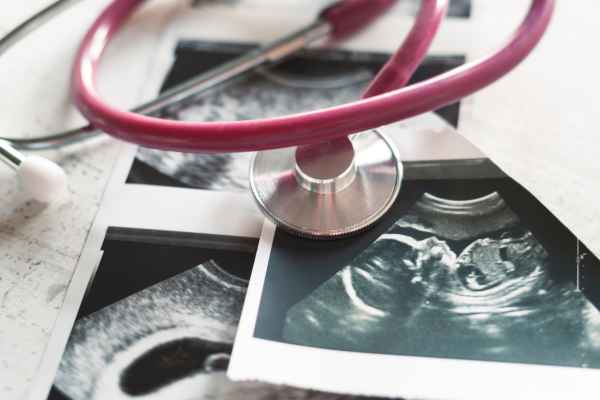
Review: HCG In Fertility Treatments For Women
This review explores the key role of Human Chorionic Gonadotropin (HCG) in fertility treatments, including ovulation induction, luteal support, and embryo implantation. It covers HCG’s mechanisms, effectiveness in ART procedures like IUI and IVF, and use in pregnancy testing. Alternatives like Gonadorelin, HMG, and Kisspeptin are also discussed, along with side effects and risk management. The article highlights HCG’s critical role in reproductive medicine and its ability to improve fertility outcomes.

Gonadorelin for Men : Key to Hormonal Balance & Energy
This blog explores Gonadorelin, a synthetic GnRH, and its role in boosting men's hormone health. By increasing LH and FSH, Gonadorelin supports testosterone production, fertility, and overall hormone balance, offering potential benefits for treating low testosterone and improving natural hormone regulation. The blog also compares Gonadorelin to TRT, discusses side effects, benefits for reproductive health and metabolism, and explores related peptides like HMG, PT-141, HCG, and Kisspeptin.
